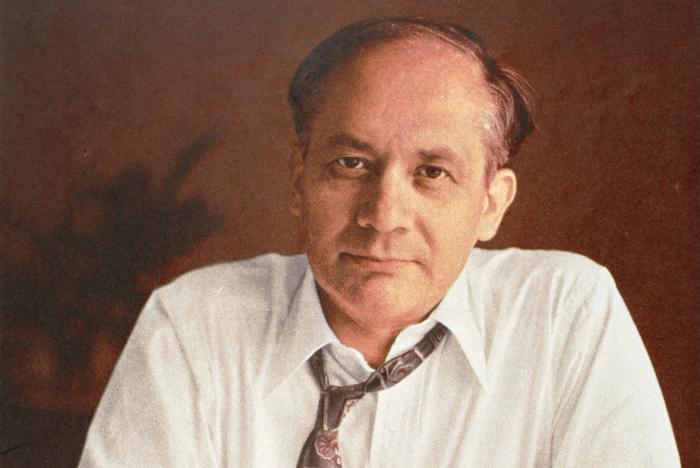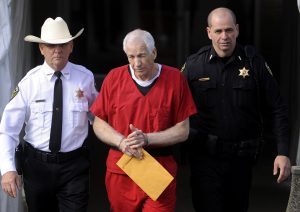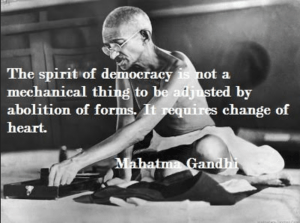
At a quiet New York cemetery in 1959, a handful of people stand around a fresh grave as a casket is lowered. Any passerby seeing the small somber ceremony might assume that the body belonged to a person of little significance. In fact, this casket carries the body of a man who is responsible for one of the largest shifts in international law in human history. Without his efforts, it is likely that the gravest crime mankind has ever committed and continues to commit would still be a crime without a name.
By the end of World War II, the Nazi regime had orchestrated the murder of over 17 million civilians in concentration camps throughout Europe. 1 Despite these egregious atrocities, no one at the time referred to the Holocaust as an act of genocide, not because it was not an appropriate descriptor, but because Raphael Lemkin had not yet coined the word and defined the crime for the world. The outcome of his personal crusade to encode ‘Genocide’ in an internationally recognized and binding Convention to which the US would sign on became his legacy (the US signed on decades after his passing).
Lemkin was born to a Polish-Jewish family in 1900 in a small village called Bezwodne in what was then The Russian Empire. Home schooled by his mother, he proved to be a brilliant scholar. By the time he received his undergraduate degree from Jan Kazimierz University he had learned over 14 languages and showed strong aptitude and interest in international law. After a career as a prosecutor in Poland, he was forced to flee to Sweden to evade capture by the Nazi forces in 1939. However 49 of his relatives were tortured and/or killed, drops in the ocean of inhumanity that was the Holocaust. 2

After fleeing the Nazi invasion, Lemkin eventually made his way to the United States. There he became a prolific professor, lecturing at the law school at Duke University in 1941 and the School of Military Government at the University of Virginia in 1942. He also served as an adviser to the United States War Department specializing in international law. 3
The world first became aware of Lemkin’s concept of genocide after the publication of what would arguably be his most important work, Axis Rule in Occupied Europe, in 1944. Primarily a legal analysis of the behavior of Nazi Germany in occupied territories during World War 2, the book also contained a full definition of the crime Lemkin dubbed “genocide.” 4 After this publication, Lemkin dedicated the rest of his life to getting the international community to acknowledge genocide as a crime under international law.
Lemkin drafted a resolution for a treaty which would officially ban genocide under international law. He then took his resolution on the road, presenting it to any nation which would hear him, hoping to garner enough support to endorse a convention on the subject. After years of lobbying the international community, The United States UN delegation agreed to present Lemkin’s resolution to the General Assembly. Dubbed “The Convention on the Prevention and Punishment of the Crime of Genocide,” the resolution was adopted on December 9th, 1948. It would be another 3 years before enough countries signed on the the convention to make it enforceable. Much to Lemkin’s dismay, The United States was not one of the first 20 signatories. 5

Lemkin dedicated the rest of his life to lobbying those nations which had not yet signed onto the convention, with the United States being his primary target. He invested every moment of his time and every cent of his modest wealth to landing that particular white whale. He eventually died of a heart attack, impoverished, unemployed, and underappreciated, in 1959. His funeral was a small affair, reportedly only attended by 7 people. 6 Yet, today, the is no Law School, no class that teaches Human Rights, nor any conversation of World War II and any of the subsequent Genocides that does not mention his name. More importantly, the Convention provided some tools to prevent or punish such cases.
The greater legacy of his life’s work would not be realized until several decades after Lemkin’s death. The United States would eventually sign the Genocide Convention, but not until 1988. The international community would eventually convict a man of the crime Lemkin coined, but not until the International Criminal Tribunal for Rwanda in 1998 which found Jean-Paul Akayesu guilty of the Rwandan genocide. Three years after that, Radislav Krstic was similarly convicted for the murder of 8,000 Bosnian Muslims in Yugoslavia. 7 Though he died nearly 40 years too early to see the fruits of his labor truly flourish, we can hope that his soul finds solace in the fact that, thanks to him, these heinous actions have a name and are viewed the world over as being among the worst crimes humanity has ever known. Eradicating the crime of genocide still eludes us but at least accountability is now more widespread around the world. 8
- Donald Niewyk and Francis R. Nicosia, The Columbia Guide to the Holocaust (New York: Columbia University, 2000), 43. ↵
- Raphael Lemkin and Donna-Lee Frieze, Totally Unofficial: The Autobiography of Raphael Lemkin (New Haven: Yale University Press, 2013). ↵
- Robert Bliwise, “The Man Who Criminalized Genocide,” Duke Magazine, November 14, 2013, http://dukemagazine.duke.edu/article/man-who-criminalized-genocide . ↵
- Rafael Lemkin, Axis Rule in Occupied Europe: Laws of Occupation, Analysis of Government, Proposals for Redress, (Washington D.C.: Carnegie Endowment for International Peace, Department of International Law, 1944) pg. 79. ↵
- Raphael Lemkin and Donna-Lee Frieze, Totally Unofficial: The Autobiography of Raphael Lemkin (New Haven: Yale University Press, 2013). ↵
- Jay Winter, “Prophet Without Honors” The Chronicle, June 3, 2013, https://www.chronicle.com/article/Raphael-Lemkin-a-Prophet/139515 . ↵
- Robert Bliwise, “The Man Who Criminalized Genocide,” Duke Magazine, November 14, 2013, http://dukemagazine.duke.edu/article/man-who-criminalized-genocide . ↵
- United Nations, “Convention on the Prevention and Punishment of the Crime of Genocide,” United Nations Treaty Collection, 78:1, 1021 (9 December 1948), New York: United Nations, 1951, 278-311. ↵



196 comments
Kacey Diaz
This was a really well researched and informative article. It’s crazy to think that the term genocide hasn’t always been around. The efforts of one individual proved that when there is something that needs to be changed, it can change. Now the world knows what genocide is and how terrible it really is.
Maria Rivera
I was not aware that prior to the Holocaust, there was not a term for genocide. It’s interesting that policy had not yet been created, considering events that have taken place before World War II, such as the Armenian genocide. It’s so unfortunate that Raphael Lemkin did not get the chance to see how international law advanced from his contribution. How embarrassing for world leaders at the time, that it took Lemkin years of lobbying for the resolution to be adopted and an additional three years for the convention to become enforceable.
Lulu Avitua-Uviedo
This article, very well written and explained, gives a strong view of Lemkin’s research, understanding and importance of informing the people of the what Genocide is, and the mass, deadly evidence it does to the people. I too don’t understand what took so long to sign the Convention on the Prevention and Punishment of the crime of Genocide. As an activist myself, I have spoken to people who fought alongside, Cesar Chavez for the safety of the Farm Workers and Genocide. The people in office, for so long didn’t see the effects until faced with the death and disabilities genocide was doing to the labor workers and the future birth defects. Great paper!
Kendall Guajardo
I really enjoyed this article as it is very important to recognize historical figures who were drowned out. Lemkin was extraordinary in his efforts to bring this heinous crime to punishment. Without recognizing such an action or event, horrendous crimes would not be punished even when there continues to be squabbles and disagreements in the international arena. It is so sad and appalling that the United States would withhold their support for the Prevention and the Punishment of Genocide. Since we are a democracy and preach as one, I think it would’ve been really interesting to hear why they didn’t sign on in the first place. Overall this was a well-written article with a very important message. Sometimes the most meaningful contributions to society and humanity fail to appease current political structures but eventually go on to change the world.
Aracely Beltran
Amazing work, well written article. When I read stuff like this I rethink my whole life because I feel that I am doing compared to people like Raphael Lemkin. It is a perfect example of how it only takes one person to change people’s perception and shine the light on an issue. Genocide is such a touchy subject and it is sad that people don’t know that terrible things as such happened in the United States as much as they would like to deny it or call it other things. Again great work.
Madelynn Vasquez
I was intrigued at the fact that during World War II there hadn’t been a term for what we now know today as “genocide”. It was super informative and it was sad to see that Lemkin hadn’t been around to see the recognition he had received. It was also interesting to see that the United States took so long to sign the Convention on the Prevention and Punishment of the Crime of Genocide, and it would be interesting to learn more about that as well! Overall, great work!
Thiffany Yeupell
One truly has to admire the perseverance of Lemkin, until the very end, he lobbied for particular nations to sign the convention. And to provide and coin the word ‘genocide,’ he has done a great service in providing a name to an act so heinous, but needed the form of accountability, to move forward for further prevention, recognition, and conviction. Without this heavily loaded word, the course of history may have changed for the worse, considering that genocide happens to be a problem that the world sees flaring up time and time again, even in today’s events. And finally, we see another instance of the following phrase, “history is written by the victors” (paraphrased), like Lemkin, an extraordinary man impacting history and language was secluded and forgotten by those in power. But thanks to Wyatt, his name gains more power and recognition, as it slowly seeps through the readers of this article.
Shriji Lalji
I wonder what genocide was referred to before Lemkin coined the term. I assume no one could have imagined another person killing so many other humans to ever create that word, until Hitler. The article is well written and creates a hook from the very beginning. It is unfortunate that Lemkin never saw how important the term genocide is and the role it plays in history.
Ariana Melendez
Before reading this article, I was unaware that the term “genocide” did not exist during World War II. This article does a great job detailing Raphael Lemkin’s struggle in trying to make this term known. The fact that he proceeded to ensure genocide was a crime on a global scale and that there would be consequences for it prove his dedication to this. It is sad, however, that the U.S. took so long to be on board with it.
Savannah Alcazar
The first sentence of the article captures the reader’s attention alone. Overall, I enjoyed the content and feel enlightened from the information. The way Lemkin left the Earth is terrible; ONLY seven people showed up to his funeral! It kept my attention the entire time.
I have two points of constructive criticism. The first being in the fourth paragraph: “… lecturing at the law school at Duke University in 1941…” I would suggest it be “lecturing for the law school at Duke University”. Multiple uses of “at” in a single sentence has always read aberrant for me. The second note comes from the fifth paragraph: “…territories during World War 2…” it should be “World War II” to match the rest of the article.